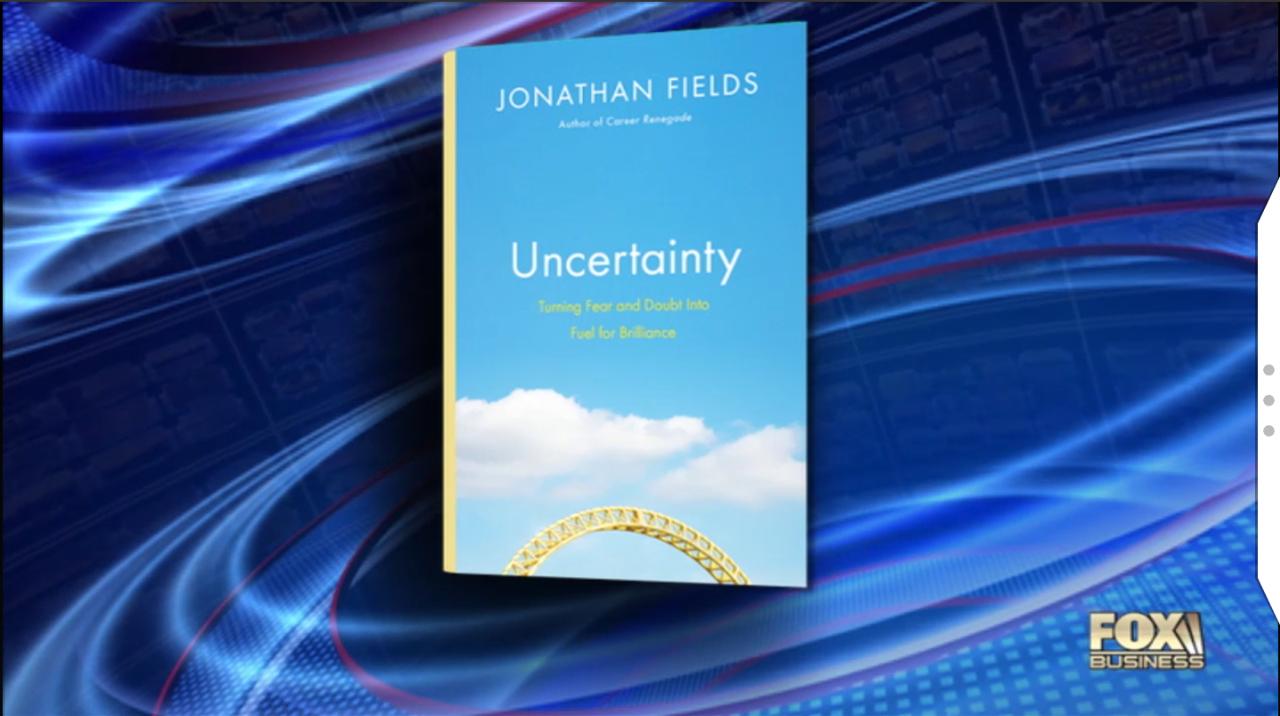Turning Fear and Uncertainty into Fuel
Part one of a two-part Q&A with entrepreneur and Uncertainty author Jonathan Fields: how entrepreneurs can turn fear on its head because, he says, inaction is worse than failing.
So, you say, uncertainty can be felt as pain? What do you mean by that?
I mean our brains are literally wired to experience taking action in the face of uncertainty as unease, as physical unease. We get a physical response. So most of us actually pull ourselves back us back from that so we don’t have to feel it anymore, which is really the opposite of what an entrepreneur has to do.
"Instead of paralyzing yourself, you mobilize yourself by asking different questions,"
So you have some key elements to help entrepreneurs [take risk]. The first is reframing?
Yes, one of the big things entrepreneurs and pretty much everyone does is when we actually have to take action in the face of uncertainty, we paint these doom-and-gloom scenarios. We tell ourselves that we are going to bomb and that people are going to hate us. What you want to do is you may not be able to change the circumstance but you change the story you’re telling about the circumstance. So, instead of paralyzing yourself, you mobilize yourself by asking different questions. What if I succeed? And then paint that picture and that’s the one you latch onto.So is it just a more positive outlook on the story instead of feeling like you’re in this dark hole?
Pretty much. I mean our brains also have this thing called the negativity bias, which means we go toward the negative story, probably as a survival instinct. So, what we need to do is keep telling the positive story, the possibility story, to counteract that and override it -- and make that our reality.Okay, and you also say to do this we need to meditate?
Yes, meditation is actually one of the things [that helps]. We have a tremendous amount of research about it now -- it literally rewires your brain so you experience having to take action when you don’t know how things are going to end with more equanimity, much more ease and calm. And you actually make better decisions along the way so a daily practice, it doesn’t make the change immediately, but over time it really changes the way you experience [uncertainty].I’m not sure people really know how to meditate. What does it really entail?
It can be fundamentally as easy as just sitting for a few minutes and just observing your breath -- notice the sensation of your breath as it enters and leaves your body. And people think, “Oh, that’s so simple, it couldn’t do anything,” but it really does.And exercise – you say that helps to relieve stress a lot?
Yes, a little counterintuitive. We know that exercise affects our body but what a lot of people don’t know is that exercise also really, strongly affects your brain. It allows you to function in a more calm way to make better decisions.And the last [idea]?
The last one I call “chunking it down.” So when we have a big thing looming in front of us, it terrifies us and paralyzes us. So, what we want to do is take that thing, chunk it into 10, 20, 50 100 smaller things and then address each one individually, and it’s a mobilizing effect because we don’t become as paralyzed when we have a smaller thing to worth with.So, just break down tasks?
Yes, and it seems to simple but we experience it radically differently and when we see there are little things to do, it just allows us a lot more freedom and allows us to take smaller risks along the way that add up to a lot more certainty and a lot more success. But what if you have one big risk, for instance, thinking “I am going to quit my job and start a business.” How do you break that down in small pieces?
That’s a great example because you can break that down into probably a thousand small pieces. You know, “I am going to quit my job": Do you want to quit your job? What do you want to start? What are all the elements of what you want to start? What are you going to have to do to get from quitting my job, keeping my insurance, testing my assumptions about the business and then making it work. So, take each one of those nuggets and see if you can run little experiments to see what works and what doesn’t.




















